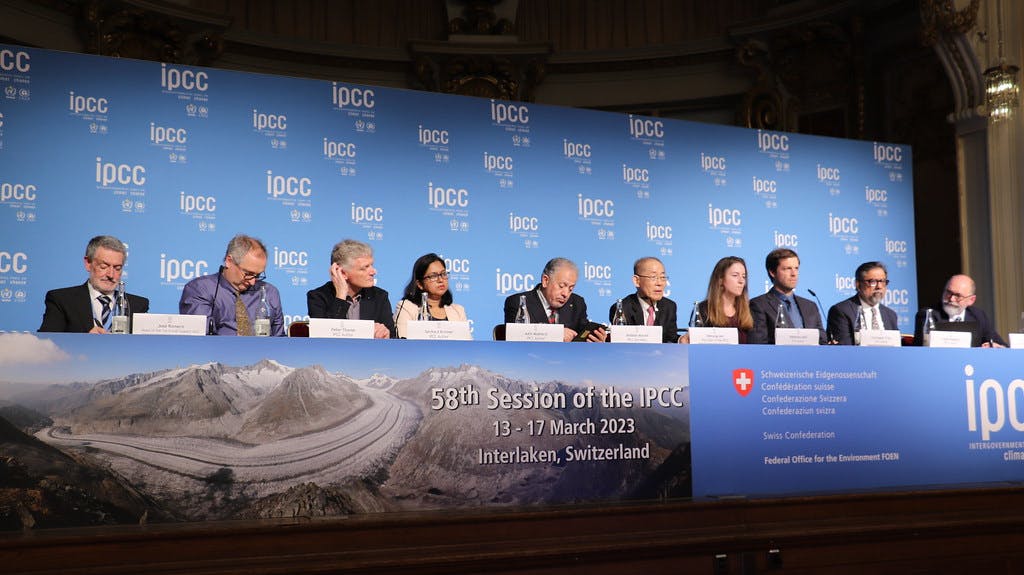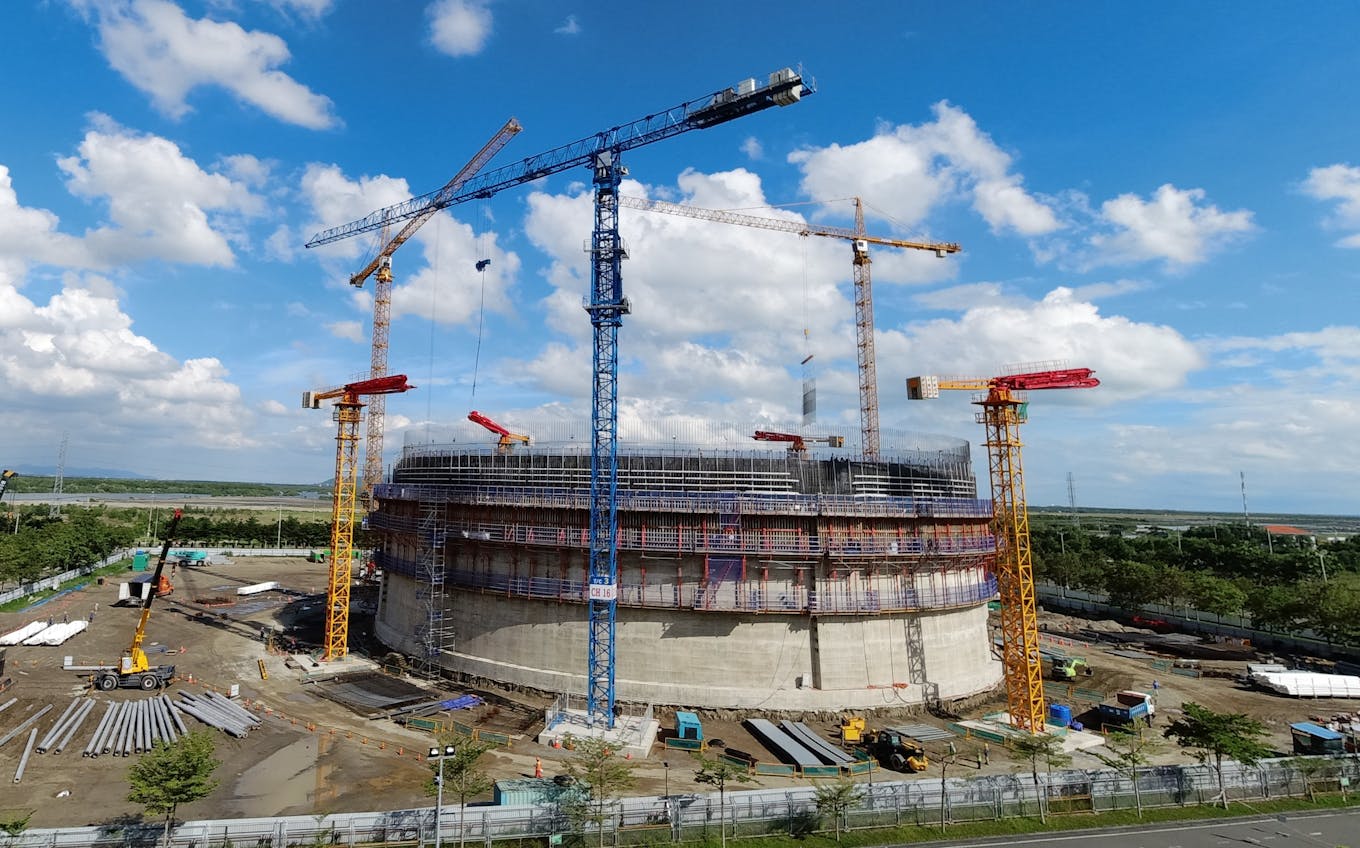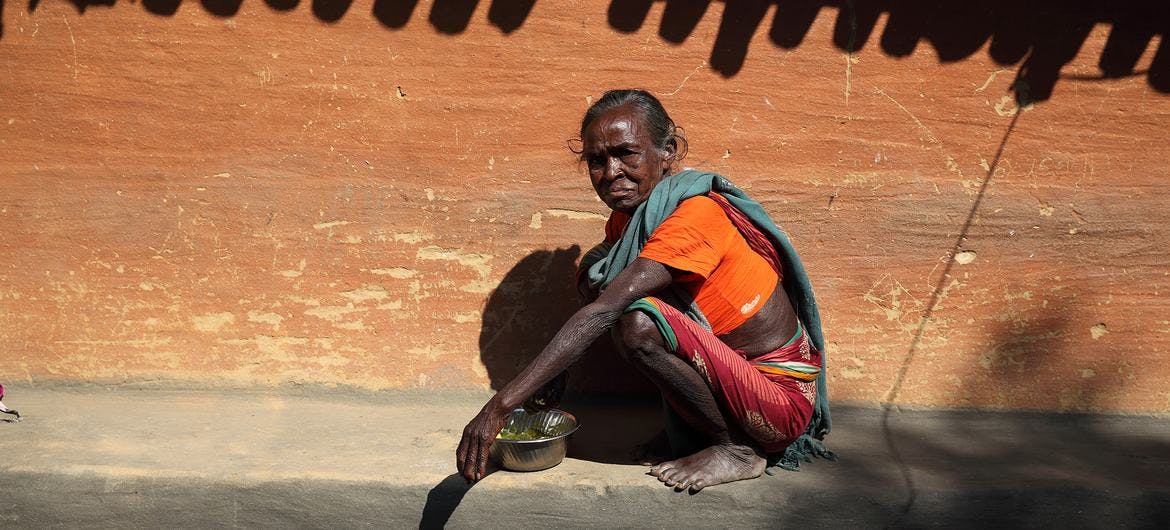Easier access to finance is needed to avert risks for developing countries, which contribute the least to climate change but are most affected by it, according to a new report from the world’s top climate scientists.
To continue reading, subscribe to Eco‑Business.
There's something for everyone. We offer a range of subscription plans.
- Access our stories and receive our Insights Weekly newsletter with the free EB Member plan.
- Unlock unlimited access to our content and archive with EB Circle.
- Publish your content with EB Premium.
If climate goals are to be achieved, “both adaptation and mitigation finance would need to increase many-fold”, up to three to six times the current amount of financing that would come from public and private funding from all regions, said the report by the Intergovernmental Panel on Climate Change (IPCC), the international body for assessing the science related to climate change. The final part of the IPCC’s mammoth sixth assessment report was released on Monday (20 March).
“We must speed up efforts to deliver climate justice to those on the frontlines of many crises that none of them caused. We can do this by safeguarding the most vulnerable communities and scaling up financial capacities for adaptation and loss and damage,” said United Nations Secretary-General António Guterres, when addressing reporters at the IPCC press conference. Countries have agreed to set up a loss and damage fund this year in last November’s COP27 global climate conference.
One of the report’s essential findings is the “value of fairness”, said Hoesung Lee, chair of the IPCC at the briefing held in Interlaken, Switzerland.
“People who live in areas highly vulnerable to climate impacts are 15 times more likely to die in floods, droughts and storms,” said Lee. “Money cannot solve everything but it is critical to narrow the gap between those who are most vulnerable and those who enjoy greater security.”

The Intergovernmental Panel on Climate Change (IPCC) addresses the media on 20 March 2023. From left, José Romero, head of the technical support unit; unidentified report author; Peter Thorne, coordinating read author; Aditi Mukherji, report author; Abdalah Mokssit, secretary; Hoesung Lee, chairperson; Katherine Calvin, report author; Christopher Trisos, report author; Andrej Mahecic, head of communications and media relations. Image: IPCC
Lee also called on governments to reduce barriers that hold back investment for climate change adaptation in developing communities through public funding and sending clear signals to investors: “It is not just about the quantity of money. It is also about how and where it is allocated.”
Most of the affected areas are from low-income households in communities in Asia, Africa, Central and South America, least developed countries, small islands, the Arctic, and Indigenous Peoples, read the report.
Among the many actions that Guterres called for, he said rich countries must try to reach net-zero greenhouse gas emissions “as close as possible to 2040”, rather than wait for the 2050 deadline most have signed up to. This takes into consideration “different national circumstances” as emerging economies might need more help to accelerate their decarbonisation plans, he said.
Fossil feud
While Guterres spoke about the need for the world to establish a global phase down of existing oil and gas production, he also said that chief executive officers and the leadership teams of fossil fuel companies can be part of the solution. Guterres said the expansion of existing oil and gas fields must stop.
The IPCC report said that existing fossil fuel infrastructure will all but certainly bust the carbon budget for 1.5°C, unless their emissions can be further reduced. There are some efforts on this front, such as via carbon capture technologies, but these are currently expensive and critics say they distract from the need for more renewables – and for fossil fuels to go altogether.
The head of this year’s COP28 global climate summit, Dr Sultan Al Jaber, said in response to the IPCC report that “progress can only happen through partnership, not polarisation”.
“We need to rapidly build the new energy system and reduce emissions from today’s energy mix before unplugging the current energy system,” said the summit president-designate, who is also chief of the Abu Dhabi National Oil Company in the United Arab Emirates.

The Thi Vai LNG Terminal is a proposed LNG terminal in Bà Rịa-Vũng Tàu Province, Vietnam. Image: CNG VIETNAM
Lidy Nacpil, coordinator of the Asian Peoples’ Movement on Debt and Development (APMDD), a regional alliance of 50 member organisations and movements, is critical of how corporates continue to push the narrative that the use of fossil gas and carbon capture can reduce emissions.
The narrative is a “blatant lie and deadly plan” that is only compatible with “capitalist interests”, Nacpil said in a statement. “Instead of being primary beneficiaries of urgent climate action from developed countries, Global South countries are being led down a path strewn with new fossil fuel infrastructures that would lock in decades of emissions and lock out any potential to attain energy security and sustainable development through clean, renewable energy systems.”
‘Rapidly closing window’
The synthesis report is the fourth and final instalment of the sixth assessment report (AR6) by the IPCC. It is written by 39 scientists from 24 countries in a culmination of seven years of global and in-depth assessments of various aspects of climate change.
While it contains no new science, it draws together key messages from all of the preceding reports to form what Guterres described as a “climate handbook” for governments or a “how-to guide to defuse the climate time bomb”. The next IPCC report is not due to be published before 2030.
The report reiterates that the world is now about 1.1°C warmer than during pre-industrial times, resulting in more frequent and more intense extreme weather, causing disruption and suffering for communities worldwide.

An elderly woman has her lunch in the sun at Adibasi Sahi, India. The extreme heat is impacting hundreds of millions of people in the country. Image: Soumi Das / UNICEF
Several developing countries felt such effects first-hand in recent years, with record flooding in Pakistan last summer, heatwaves in neighbouring India and recurring dry spells in East Africa that have decimated crops.
As temperatures continue to rise, groups like small-scale farmers and people living in coastal regions could face “soft limits” in adapting to natural hazards, solvable with more money and better governance, the report added.
Meanwhile, other efforts could become impossible with a “hard limit” – earlier IPCC studies had given examples such as trying to save tropical coral reefs.
Global warming will exceed a 1.5°C safety threshold this decade without urgent action and steep emissions cuts, with a “rapidly closing window of opportunity to secure a liveable and sustainable future for all”, it said. Countries’ voluntary targets are nowhere near enough to keep within the limit – with those up till end-2022 estimated to bring warming to 2.8°C by 2100.
The global temperature could be brought back to 1.5°C if there is a brief overshoot, but it will require the deployment of more carbon dioxide removal strategies that come with “feasibility and sustainability concerns”, the report said.
Such strategies include the popular forest management and tree planting initiatives today, though the integrity of these projects have been questioned. Mechanical means of sucking carbon dioxide out of the air and shoehorning the gas into solid minerals are expensive and done at miniscule scales today, while others like pairing carbon capture with plant-based fuels give rise to land and water usage concerns.








